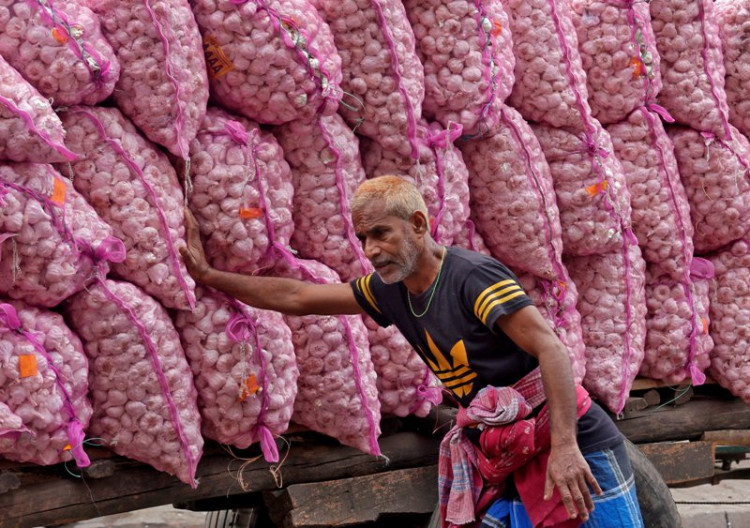Kenya is experiencing a local shortage in garlic and Chinese exporters have come to the rescue as it was reported that 50 percent of supply came from the Asian country.
According to Business Daily Africa, the Directorate of Horticulture said Kenya produces an estimate of 2,000 tonnes of garlic per year. However, this amount is not enough to supply demand in the Kenyan market. "We do not produce enough garlic for our own use and we have to import about half of what we get locally to bridge the deficit," the directorate explained.
Recently released data revealed that 50 percent of garlic imports that Kenya requested came from China as traders and suppliers from other countries rallied to help lessen the supply gap.
One of the reasons why Chinese garlic is preferred by Kenyan traders is quality. While the commodity retails at the same price local garlic sells per piece, the produce from China is bigger, attracting many buyers.
Aside from garlic, Kenya has also stepped up its fish imports from China. According to the State Department, 22,000 tonnes of fish (Sh1.7 billion) were imported mainly from Chinese providers in 2018. These figures are higher than the data recorded in 2017.
Meanwhile, China continues to be a dominant trading partner for African states. Aside from Kenya, Beijing has also been working with Ethiopia and Cameroon.
Last week, reports emerged about the Chinese government writing off the Republic of Cameroon's debt or at least some of it. According to CNN, some of the reports unveiled incorrect figures. Due to the misunderstanding, Beijing had to intervene.
Chinese Foreign Ministry spokesperson Hua Chunying told the outlet, "China agreed to waive the interest-free inter-governmental debt that Cameroon had not paid back by the end of 2018." Hua was referring to the debt amounting $78.4 million.
The write-off reports came after Chinese diplomat Yang Jiechi met with Cameroon President Paul Biya in January. The deal was unnoticed until one report emerged about Beijing's decision to write off a certain amount for the African state.
Some analysts suggested that the reason the Chinese government may have chosen to keep the deal a secret is due to current political troubles that Cameroon is experiencing. On the other hand, China continues to support road restoration and construction projects in the Central African country.
As for Ethiopia, the country's President Sahle-Work Zewde met with Chinese State Councilor and Foreign Minister Wang Yi earlier in January. According to Xinhua, the Ethiopian government expressed a willingness to further improve cooperation with Beijing.
Furthermore, Ethiopia said it is ready to actively support President Xi Jinping's Belt and Road Initiative project. Wang echoed Sahle-Work's statements, expressing his hopes for the African country to continue promoting China-African collaborations.





